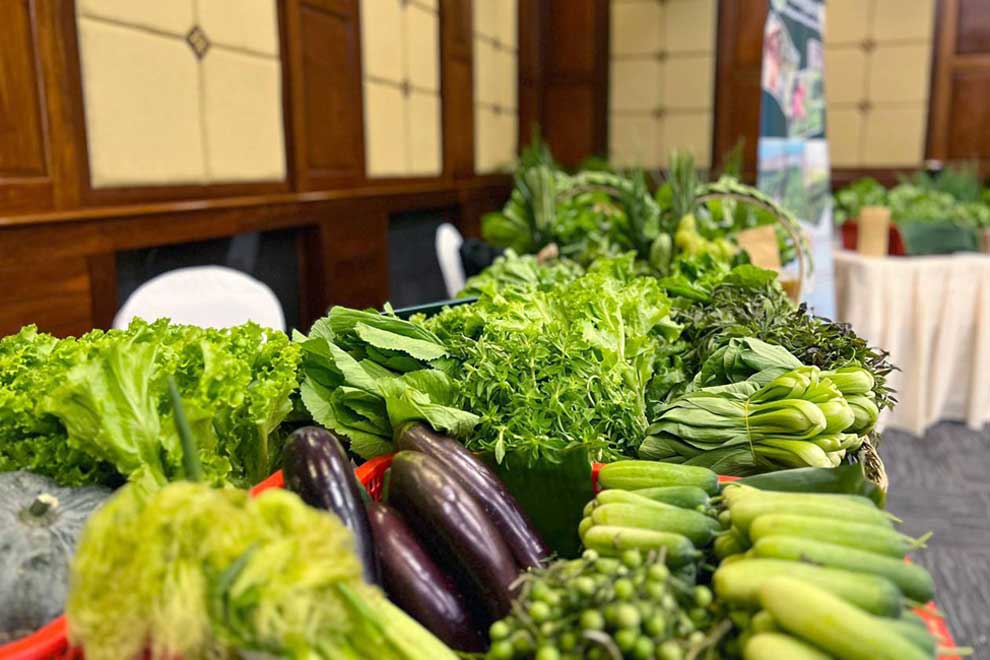
APICI project workshop on Sustainable Food System was held in Siem Reap province on June 29. GRET CAMBODIA
As the 29th International Day of Cooperatives approaches this July, GRET, a non-profit focused on international cooperation, professional solidarity, and poverty reduction across Asia, Africa, Europe, and Latin America, declares its dedication to aiding cooperatives in Siem Reap province. They aim to bolster secure, sustainable agriculture and promote ecological farming and products.
The United Nations celebrates the International Day of Cooperatives each July, raising awareness about the importance of cooperatives and their principles of international solidarity, economic efficiency, equality, and world peace. This year marks the 29th iteration of this event.
This year, the event’s spotlight falls on the theme “Cooperatives for sustainable development,” showcasing how cooperative work models, underpinned by cooperative values and principles, can fulfil the sustainable development goals (SDGs).
“In September 2023, the international community will mark the mid-point in the implementation of the 2030 Agenda for Sustainable Development and seek ways to accelerate progress in the sustainable development goals. Thus, it is a real key moment to demonstrate the contribution of cooperatives in advancing the achievement of the SDGs,” the organisation asserted.
Touch Sokharith, project manager of the APICI project at GRET, told The Post about their experience in assisting a cooperative in Siem Reap. The cooperative had evolved from a traditional farming village and had seen positive outcomes since its formation.
“Our experiences working with the cooperatives have been in alignment with the development policy of the country. We want to support them as much as we can technically, financially, or in any other way. More than just financial stability, we also try to ultimately integrate environmental protection and social collaboration for their future sustainability,” he stated.
Since 2010, the APICI project, backed by multiple organisations and the Siem Reap provincial government, has aimed to enhance and secure the living conditions of smallholder farmers. It achieves this through agro-ecological practices and structuring of local value chains.
Sokharith explained that GRET’s APICI project also aids the growth of cooperatives such as Ecofarm. It provides resources in irrigation, marketing, equipment, and techniques. This support has enabled cooperatives like Ecofarm to advocate for agro-ecology and the production of certified safe, sustainable agricultural goods.
“We hope to see more attention and tailored support provided to more cooperatives, not only in agriculture but in the many various sectors that Cambodia has,” he expressed.
Thai Soda, deputy president of Chamkar Sovathephap Thamacheat Agriculture Cooperative (Ecofarm), voiced her satisfaction with the formation of a cooperative in her region. She stated that being part of the APICI project to assist smallholder farmers in Siem Reap has amplified their income and enhanced their quality of life.
“When we form together as a cooperative, we collectively produce our products. We are stable in terms of production and income,” she remarked.
The German Cooperative and Raiffeisen Confederation (DGRV) notes that Cambodia had more than 1,200 agricultural cooperatives in 2020, involved in various sectors including agro-inputs business, vegetable and rice seed value chains, credit activities, chicken farming, and food processing.











